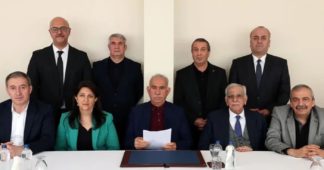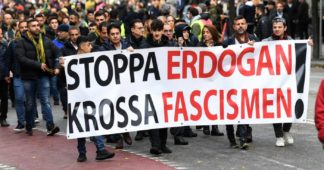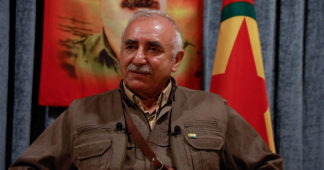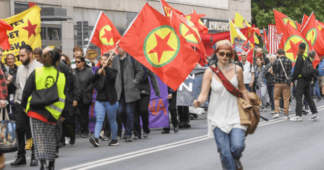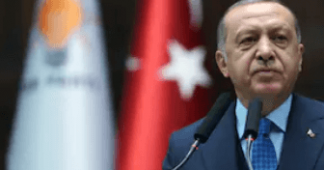Abdullah Ocalan’s call for the PKK to end its decades-long armed struggle against Turkey has prompted both hope and scepticism.
Thousands gathered in the central, predominantly Kurdish province, of Diyarbakir on Thursday, waving red, yellow, and green Kurdish flags and chanting slogans as they watched Ocalan’s letter being read out on big screens by members of the delegation that visited him.
Reactions were divided, with some welcoming the call as a step toward peace while others dismissed it as a mistake.
“It is good. It is valuable,” said Mehmet Kaya, a 54-year-old shopkeeper from Batman province. “We hope the rest of it comes with it, peace comes. We want peace and calm.”
Pensioner Sadullah Bozyigit, 58, viewed the call as a broader signal for the region. “This message is not only for Kurds and Turks. It is for all the peoples of the Middle East,” he said.
Others rejected the call outright.
“This is not the right step,” said Mustafa Ogut, a resident of the central Turkish province of Nevsehir. “In previous years, they wanted to lay down their weapons. They did, and they got stronger again. This is a wrong step.”
Insurer Tekin Erturk, 61, speaking in Istanbul’s Kadikoy district, expressed cautious optimism. “God willing, we wish for peace, tranquillity, unity, and brotherhood. Let there be no more terrorism problems in this country,” he said.
Political analysts remained sceptical about the Turkish government’s intentions.
“Ocalan has made a historic peace call, but it is unclear whether Ankara is genuinely seeking a deal or executing a self-serving political manoeuvre,” said Wolfango Piccoli, co-president of political risk consultancy Teneo.
“Even in the most optimistic scenario, resolving this multi-front conflict may take years.”
He added that President Recep Tayyip Erdogan faces high stakes, as he may need support from the pro-Kurdish DEM Party to secure the votes required to amend the constitution and run for re-election in the future.
Erdogan will likely tap Ocalan’s call to engage Kurds on a constitutional overhaul, which would enable him to overcome term limits and seek re-election in May 2028 while also safeguarding Kurdish cultural and language rights, Emre Peker, a director at Eurasia Group covering Turkey, said in a note.
“If talks with the Kurds get stuck, as they did during 2012-15, Erdogan would probably escalate a political crackdown against (pro-Kurdish party) DEM and launch military offensives against the PKK to bolster his nationalist credentials,” Peker said.
We remind our readers that publication of articles on our site does not mean that we agree with what is written. Our policy is to publish anything which we consider of interest, so as to assist our readers in forming their opinions. Sometimes we even publish articles with which we totally disagree, since we believe it is important for our readers to be informed on as wide a spectrum of views as possible.
